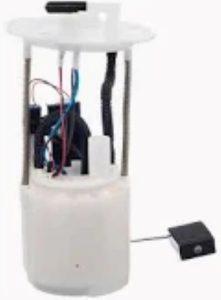Your engine needs to work nicely if you want your car do so likewise and that is where the fuel pump comes into play. However, can this lead to hard starting? To address that, we should have a sharp top about the effect of fuel pump execution on initiation in this way.
The most critical is fuel pressure which should be at a certain psi starting the engine, when you begin to experience hard or long crank starts these are signs of potential fuel pump failure. Many fuel systems need a specific range for the pressure level, which is typically somewhere between 30 and up to as high as 80 psi depending on make and model of your vehicle. However, if the pump is unable to sustain this pressure, your engine will have a difficult time going on or not go on at all. This is a common problem mechanics witness in old cars especially with fuel pumps that have already seen more than 100,000 miles. Fuel pumps almost never fail with 0 pressure but, as they get older in the years and miles of use, it is likely that efficiency may deteriorate faster than expected causing them to not keep enough pressure for a proper start.
Variations in temperature can also have a bearing on how well the fuel pump works. Cold weather, for instance, can make it more difficult to get the fuel through that pump efficiently — especially if over time a lot of gas has been run though. In this age-old system fuel thickens slightly in extremely cold weather, adding stress to the already torn pump and further restricting fuel delivery. This is a condition most common in regions that experience freezing winter temperatures.

Low fuel supply as well has a direct impact on the engine starting easily. A car that is driven on low-fuel conditions many times faces great pressure, as the fuel pump must work at lower efficiency. Most manufacturers state it is necessary to have a minimum of 1/4 tank full, as some pumps rely on that fuel for lubrication and cooling. Hard Start This situation, both of which are easy to start gasoline cars will insist on refueling when low fuel driving is not too frequent. A 10% reduction in the service life of a car's oil pump and up to 20%.
Fuel pumps are not exactly invulnerable, too. If dirt or rust particles start to enter the fuel tank, they could block the pump and of its filter robbing you of fuel flow which leads to hard starting. Countless cases were recorded of fuel pump failure caused by contaminated gasoline, and this issue becomes more common in areas with less comprehensive regulations for the quality of a gas. This underscores the need for routine maintenance and fuel system checks — particularly in a hard-start situation that happens often.
Additionally, cars past 150k miles then to be at higher risk of fuel pump issues. With time, the rotor brushes and motor etc., all these parts start to wear down as the pump ages giving rise to a lower rate of efficiency. The symptoms begin with the fuel pump being extended cheaper to initiate which is a strong signal or sign that maybe its time in the pasture.
The "Fuel Pump" is a highly popular selling replacement part and critical for vehicle performance with symptoms that include hard starting, worsened engine operation & higher maintenance costs! Hard starts If your car experiences hard starts, it can be time to assess the fuel pump. For a dependable substitute and to understand much more, go companion site Fuel Pump.